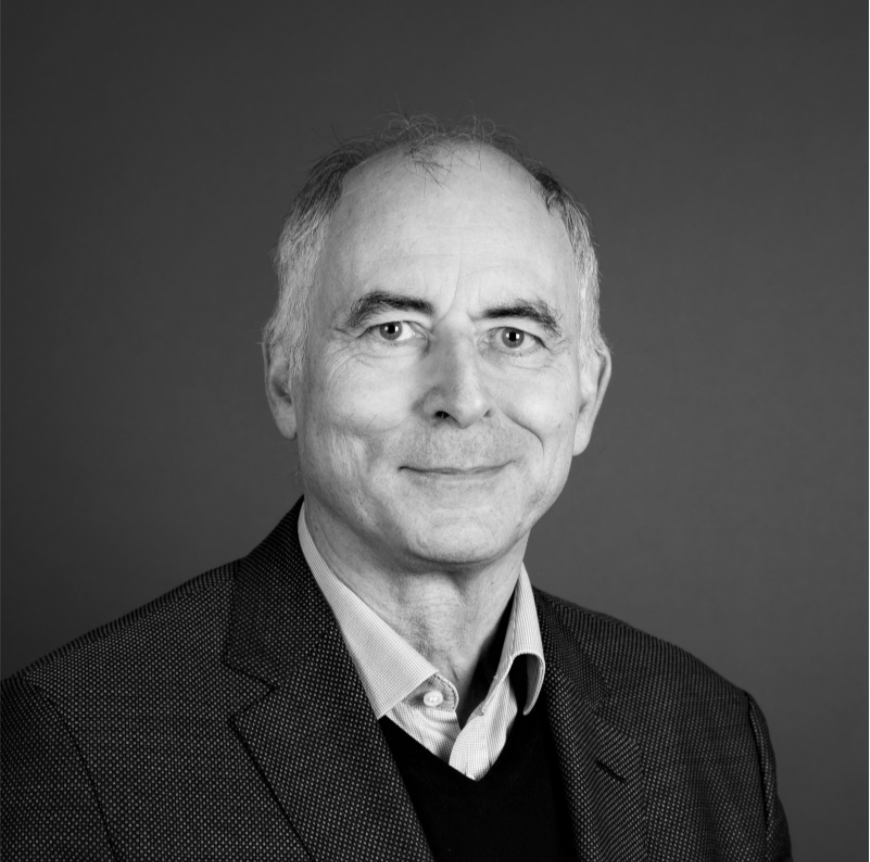To change the planet, we have to measure it
“When did I start to have an interest in mathematics? As soon as I was born.”
Jean-Michel Lasry uses mathematics to create new ways of modeling our world. A world-renowned financial theoretician, creator of mean field game theory, academic and researcher, Jean-Michel co-founded Kayrros with the idea of turning opaque data into something meaningful. In 2015, at the cusp of the big data and commercial satellite imagery boom, he spotted an opportunity.
“The world was really changing. There were a lot of new data available, huge amounts of data from many different sources, but there were also new techniques, software and technologies to process these data and build useful and actionable information,” he explained.
Reflecting on the energy market and the opacity of the industry’s data — especially given the scale and impact that the market has on the global economy — the idea of Kayrros began to take form.
“Antoine Rostand and I were discussing what such a company could look like — what it could bring that would be new and useful. There was a surge in the amount of newly available information, but someone had to collect this information and turn its raw data into meaningful insight. This is a job designed for a mix of data scientists and professionals that are aware of the industry processes and challenges,” Jean-Michel explained.
At Kayrros, Jean-Michel plays an integral role in ensuring that the company maintains a balance between theoretical innovation and its practical commercial success.
At Kayrros, Jean-Michel plays an integral role in ensuring that the company maintains a balance between theoretical innovation and its practical commercial success. Mean field game theory, which Jean Michel invented with Fields Medal winner Pierre-Louis Lions, exemplifies that ethos, displaying a unique combination of mathematics and decision-making in the context of everyday life.
“Mean field game theory is game theory for a crowd of people. An example of this is the economy. We are all economic agents. We all look at price to make our decisions. Well, prices are also a result of what we all do. Which means that there’s a loop between us and the others, and in the middle of the loop is the price. And usually there is an equilibrium price that clears the market.
But many other things create loops between us and the others. An example is the traffic on roads or telecom networks. We, or smart robots driving autonomous cars, look at the traffic to decide on the best individual path; yet, at the same time, the traffic is the result of all individual choices. This is again a loop of everyone with all the others, and the effective traffic is an equilibrium. We call “mean field” the traffic — the mean field drives our decisions, while also being the result of all of these decisions. We therefore built the mathematical toolbox needed to compute these collective equilibriums.”
The achievement of creating mean field game theory stemmed from an extensive background in both mathematics and finance. After obtaining a doctorate in mathematics, Jean-Michel progressed into an academic career, as a professor of mathematics and financial theory at Paris-Dauphine University. Then, Jean Michel was offered top executive positions in investment banks as the global head of quantitative market research.
Kayrros has a strongly-rooted foundation in academia, with four of its co-founders and a scientific advisor that are university professors, giving Kayrros a strong connection to these institutions. This team of academics — Antoine Halff, Alexandre d’Aspremont, Laurent El Ghaoui, Jean-Michel Morel and Jean-Michel Lasry — have complementary areas of expertise, and with experience in real-world applications of these areas understand that theory is important, but is just the beginning of the commercial process. Coming from the world of academia and research, Jean-Michel connects Kayrros with the top research in mathematics, and has an eye for spotting new mathematical theories that could be applied to Kayrros, bringing these ideas directly to the team for experimentation.
“Sometimes my role may be to say ‘oh, we should look at this new mathematical theory, I think it could help us to find an efficient solution to our clients’ needs.’ But that’s just the first step; there’s a lot of work to go from a theory to what our clients need,” explained Jean-Michel.
Jean-Michel, Alexandre d’Aspremont — a leading French academic researcher in machine learning and AI, and a co-founder of Kayrros — and Jean-Michel Morel, university professor and head of the best French academic research group in satellite imagery processing — constitute a top-level scientific team that provides Kayrros with leading-edge algorithmic and scientific knowledge.
For Jean-Michel, the implications of this work are far-reaching.
“We have built a company which is able to mix advanced image processing techniques with many other valuable data sources. I find that the most interesting part about this is that we’re able to solve problems for our clients, but also for the planet.
The fact that we can measure carbon emissions in a dynamic array of use cases is really key. If we want to solve the carbon emissions problem, we have to measure it. Without measurements, you can do whatever you want without any accountability. The fact of being able to measure gas emissions, and in a systematic process at a reasonable price, is something really spectacular,” Jean-Michel said.
Endless amounts of data are made available by modern technology. The challenge is introducing real meaning and actionable intelligence to the numbers. Kayrros leadership pushes the boundaries of the company’s potential by connecting Kayrros to the leading edge of research and math, and to those who know best how to create meaning from the numbers. Now, the only question is, how far and how fast can we go?

